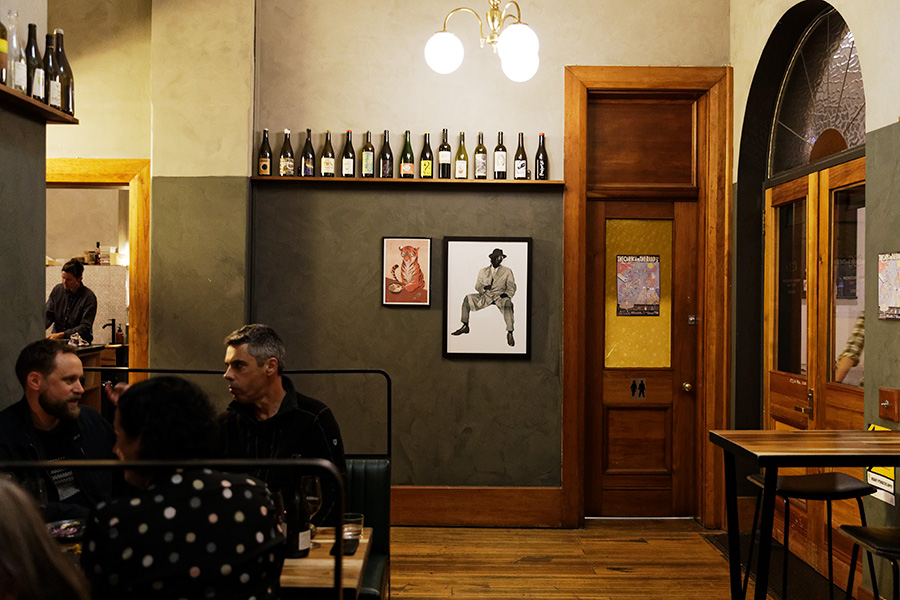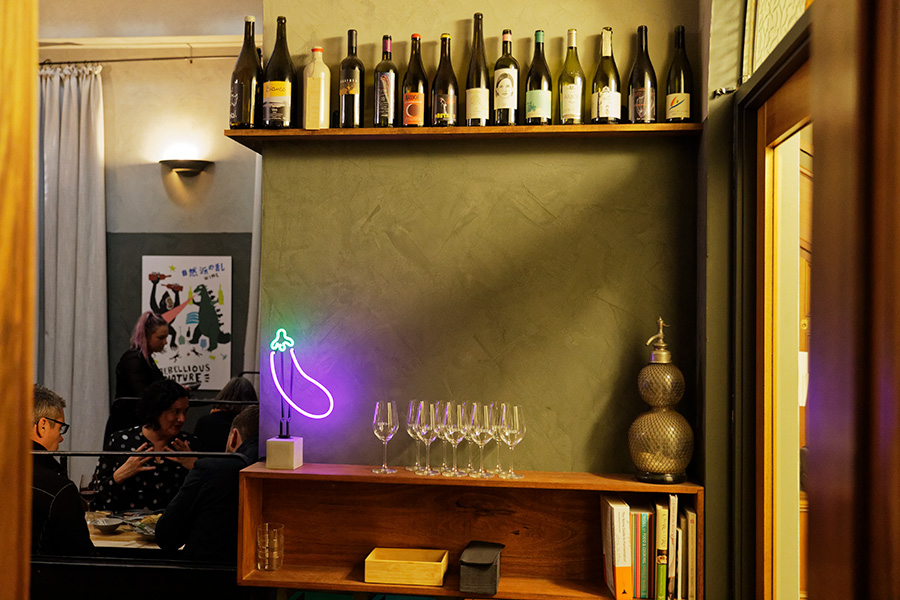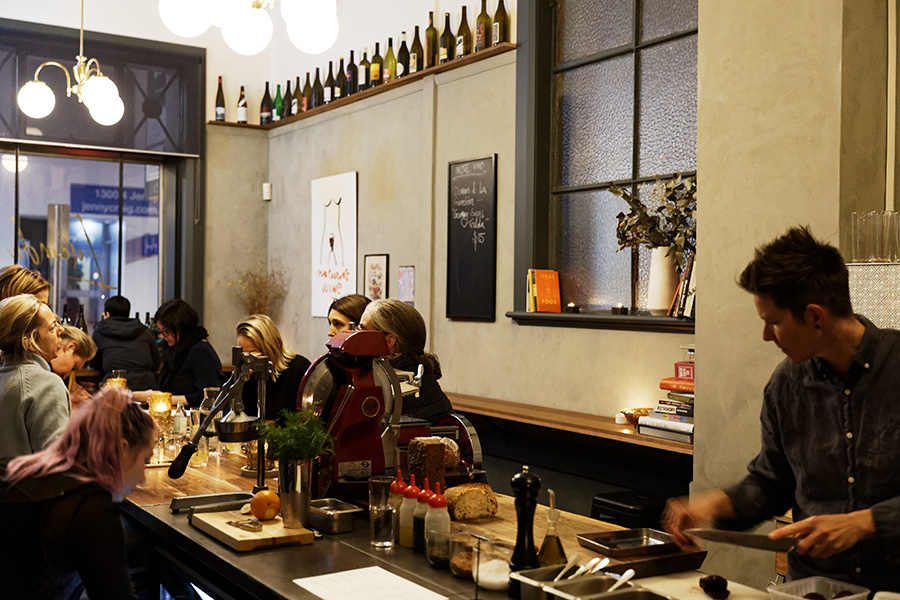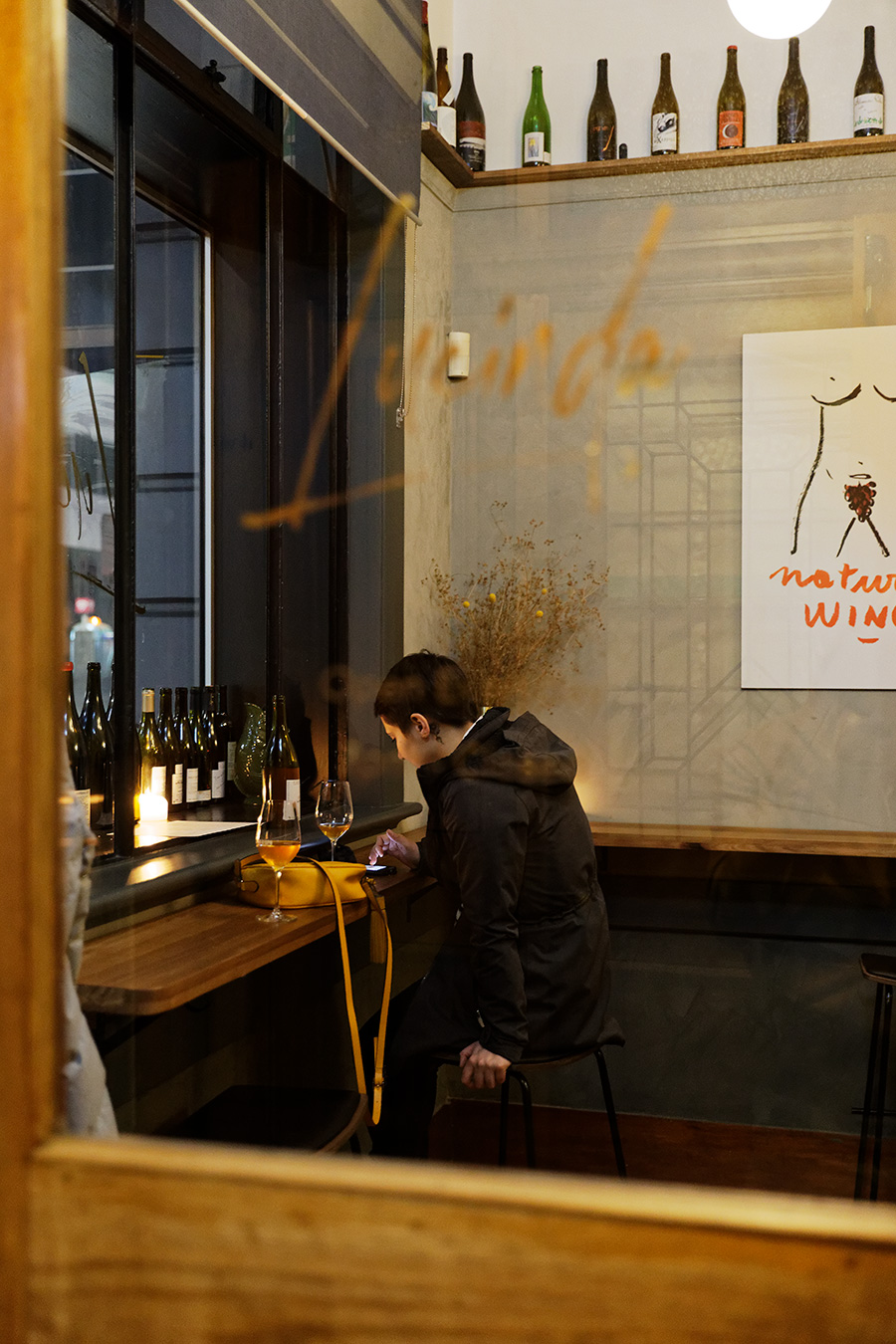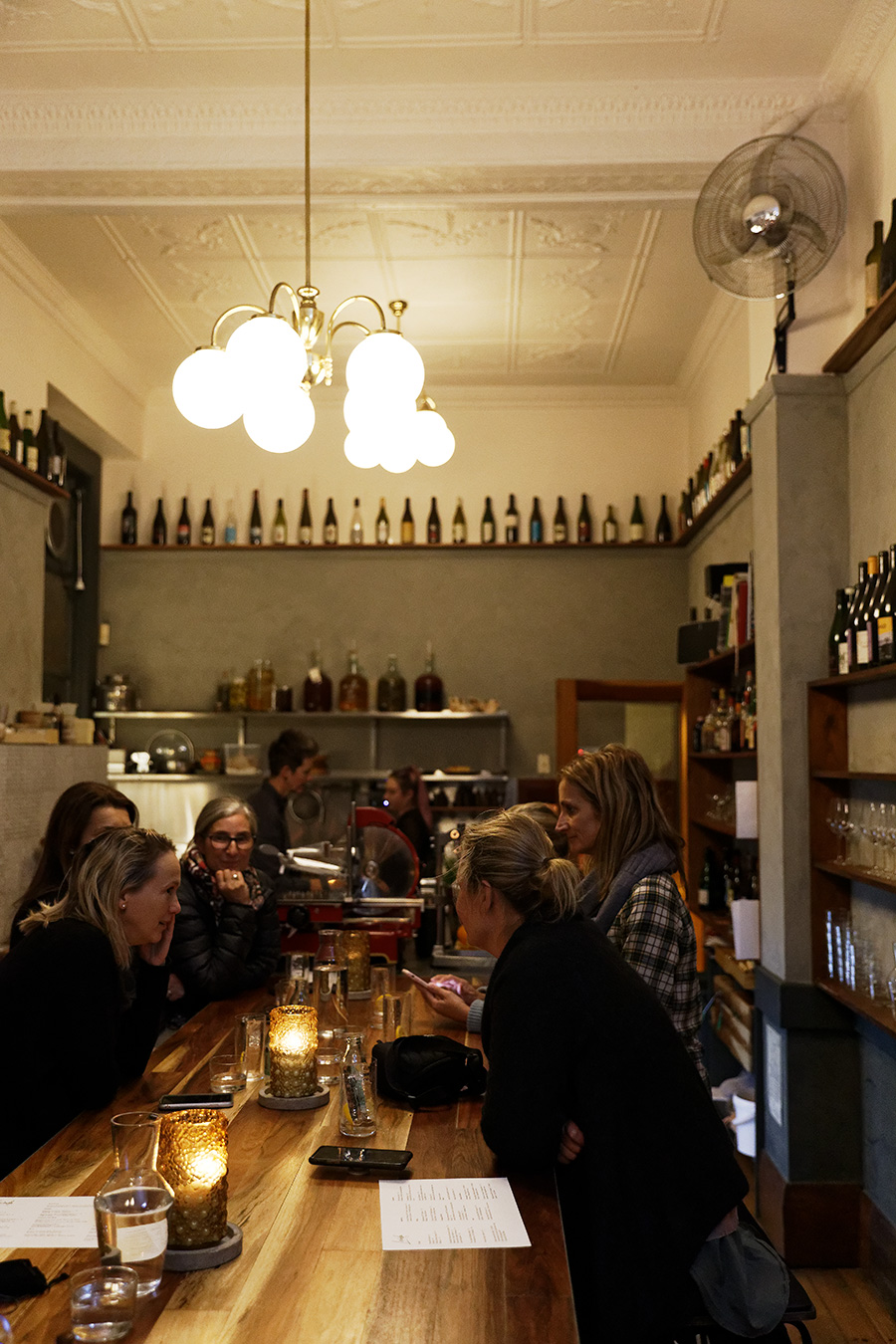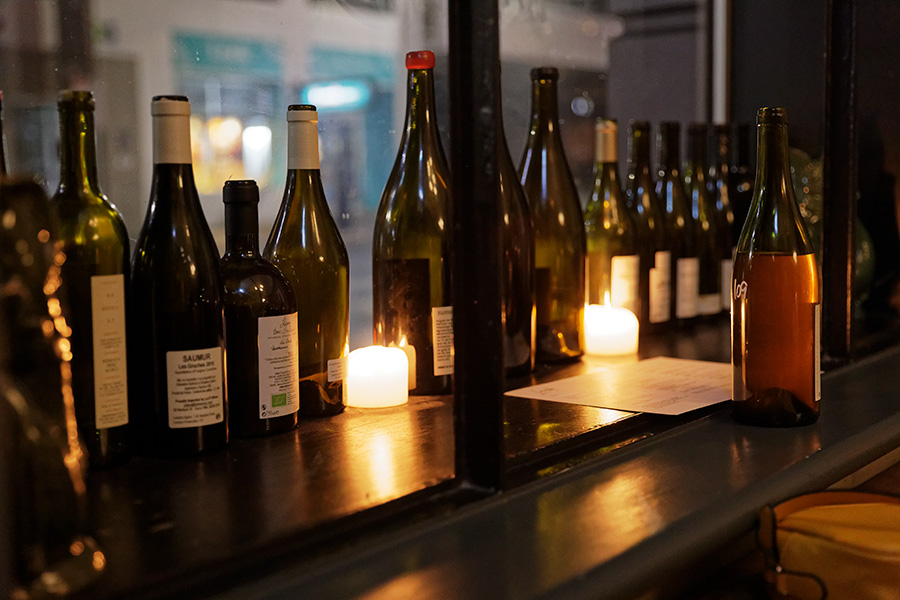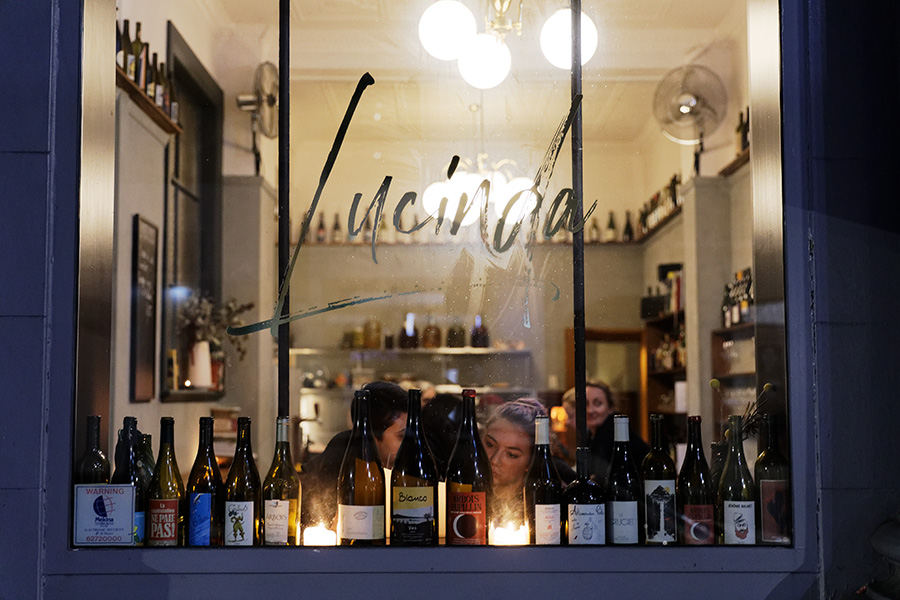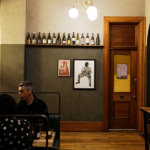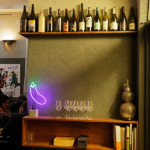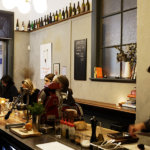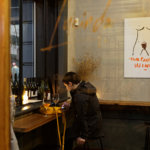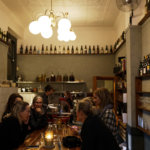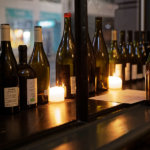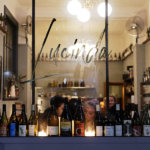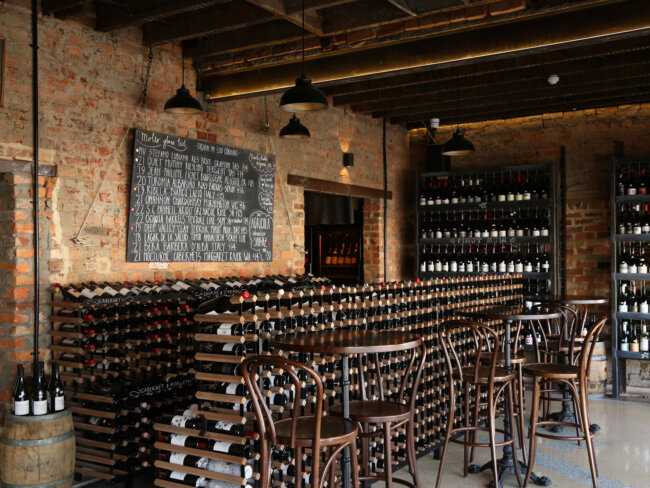The lowdown
What started as a bit of a spill-over wine bar for Kobi Ruzicka’s celebrated casual fine-diner Dier Makr, has substantially grown in its food and wine offer of late to be quite the destination venue, with a treasure trove of rare bottles and simple, clever cooking.
Kobi Ruzicka had a wine bar concept in the mental planning stage for quite some years, but it was the opportunity to lease the site adjoining his acclaimed Hobart restaurant, Dier Makr, that finally saw it realised. The exit of the café was well timed, as Ruzicka’s restaurant was soaking up a good bit of the potential wine bar trade, with few nearby late-night options for serious wine drinkers. The menu was already catering for drinkers with wine-friendly snacks, but the dual concepts needed their own breathing space.
Housed on the Collins Street frontage of the building, Lucinda has similar heritage bones to Dier Makr, with the pressed tin ceilings and hardwood floors complemented by a long timber bar. There’s no low-lying seating here, with stools providing perches along the bar and at a room-encircling shelf that will take a glass of wine and small plate of food, which is exactly what Lucinda is all about. “Come for a glass, realise you’ve just been there all night,” says Ruzicka
While Dier Makr is a degustation only dining experience, and one of the most celebrated in Tasmania, Lucinda offers an ever-changing list of small and larger share plates. Aside from the less prescriptive, linear way of eating, the ethos of the menu is a mirror of its elder sibling, with an unwavering focus on ethical, organic and local produce.
“Our plates do tend to lean towards a French caves à manger vibe,” says Ruzicka, who shares the cooking duties with Nic Treadgold, “including terrine de campagne, chou farci, quenelles with crab sauce and truffle crème caramel … and gougères are a new staple. We bake off several batches throughout the evening, and they’re definitely here to stay.”
The wine offer heads very much down a ‘natural’ line, with a heavy representation of coveted international lo-fi bottlings. Ruzicka writes up a working list of wines, but he has a growing collection of bottles in the cellar, with over 650 bins. Depending on the day, he’ll pop open 10 to 25 wines to pour by the glass, but there’s no structure here, with the direction of the offer determined as the day progresses deep into the night.
“We’ve managed to not have a set by-the-glass option for over two years now,” says Ruzicka, “it’s just down to chats we have with customers. Sometimes people want a glass of riesling, sometimes they want a wine made from unknown varieties of wild grapes grown from seed and hand picked up ladders in trees where the vines grow, and we can get them a glass of that, too.”
While lo-fi and sustainable are clear drivers, Ruzicka says his approach is even simpler than that. “I’d say the defining theme for the list is wines with character,” he says. “We all really get behind what we’re serving; it’s what we drink ourselves. In many ways the list is quite personal, we try to tick all the boxes, but there’s nothing in there that we wouldn’t drink in the right setting.”

